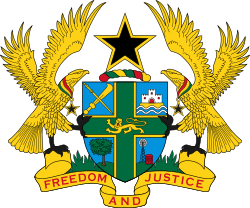Special topics
 The Petroleum Commission (PC) is set to introduce regulations on fiscal metering to minimise measurement errors in the petroleum sector.
The Petroleum Commission (PC) is set to introduce regulations on fiscal metering to minimise measurement errors in the petroleum sector.
In the same vein, officials are looking at strengthening the exploration and production data management system for gathering, transferring and interpreting information in the sector.
The acting Chief Executive Officer (CEO) of the commission, Nii Adzei Akpor, disclosed this to the Daily Graphic on the sidelines of a stakeholder’s forum on health, safety, security and the environment (HSSE) in Accra.
The forum, which was aimed at addressing stakeholders’ security and safety preparedness towards addressing emergencies, was attended by officials of the Ghana National Gas Company (GNCG), Tullow Ghana, and the Ghana National Petroleum Corporation (GNPC), among others.
During the forum, participating companies’ preparedness towards security and safety threats was reviewed.
According to Mr Akpor, the petroleum industry in Ghana did not have a comprehensive HSSE regulation to provide clarity and direction for all players in the sector.
He indicated that although there were some provisions in PNDC Law 84 and the various petroleum agreements entered into, existing gaps in the law on modern trends had necessitated the need to review a number of regulations and standard guidelines.
In line with that the commission, he noted, had been mandated by law to keep record of all information related to petroleum activities.
“While we cannot wait for the regulations mentioned above to come into force, it is only prudent that in the interim we establish a reporting format to streamline the reporting line on emergency situations,” Mr Akpor intimated.
He added that the periodic report on HSSE received from operators would assist the commission to monitor the way and manner in which the country’s petroleum resources were being harnessed.
On maritime crime and piracy, he called for the establishment of a road map that would lead managers of the resource to adequately prepare to respond to security emergencies.
He said although Ghana had not been in the news concerning maritime piracy the way neighbouring countries such as Togo, Cote d’Ivoire and Nigeria had, the proximity of those countries to Ghana’s oilfields called for frantic measures against any future security challenges.
Mr Akpor further stressed that the draft exploration and production bill currently before Cabinet to govern oil exploration and production activities in the country might not necessarily affect the physical sharing agreement currently in place.
“We are, therefore, working to ensure that the physical package of the law is guided to meet new trends in the oil and gas sector,” he explained.
Source: Daily Graphic
Get the latest news and updates on Ghana’s oil and gas value chain by following us Reporting Oil and Gas on twitter @oilgasghana and like our facebook page and get at us on Google+. Subscribe to our group to get updates.